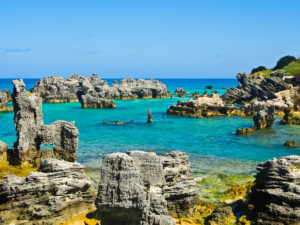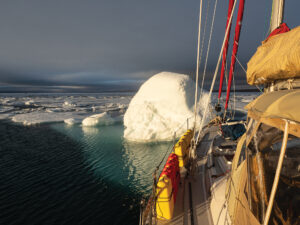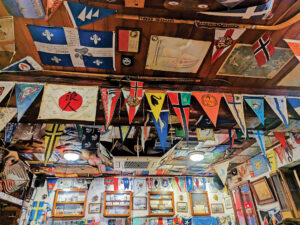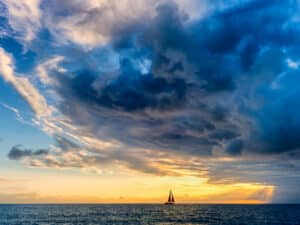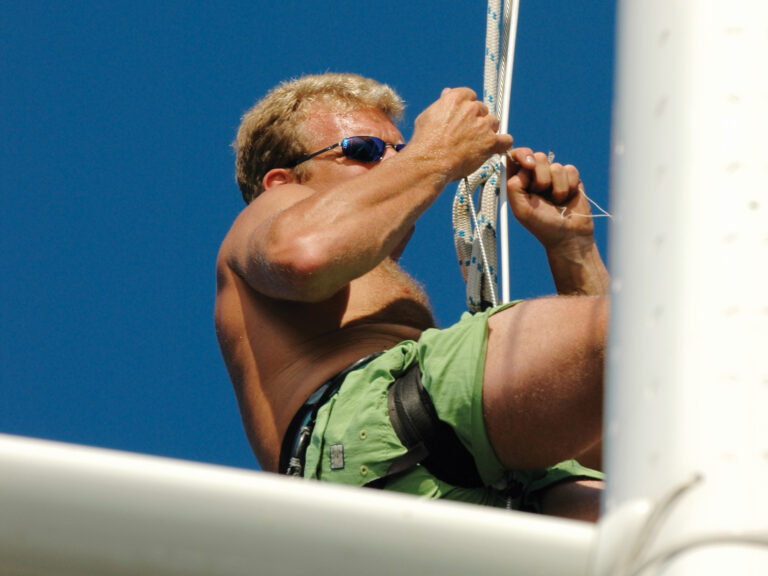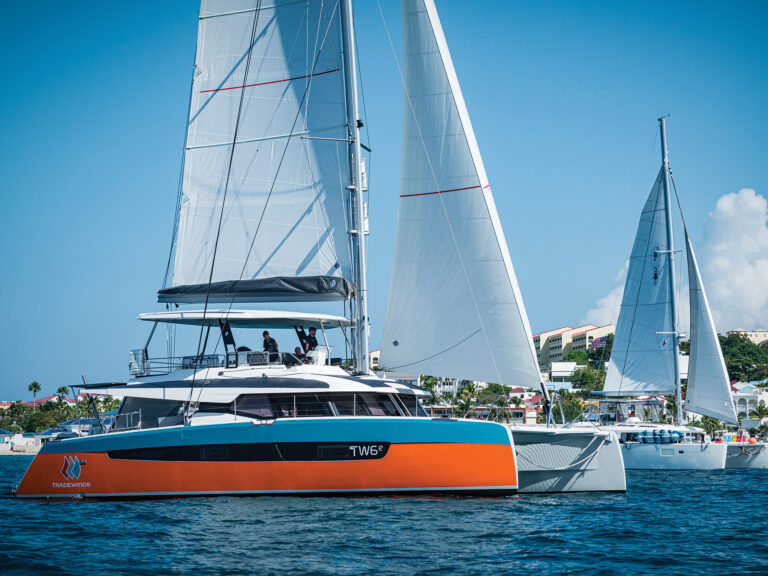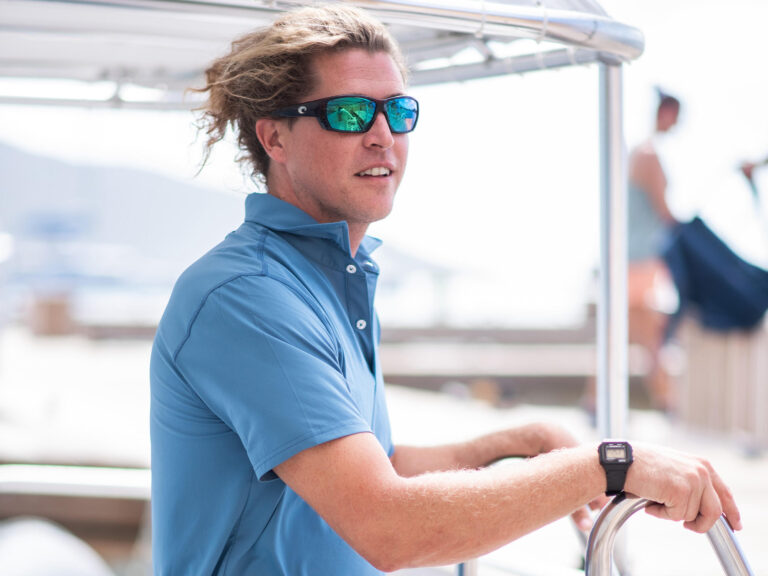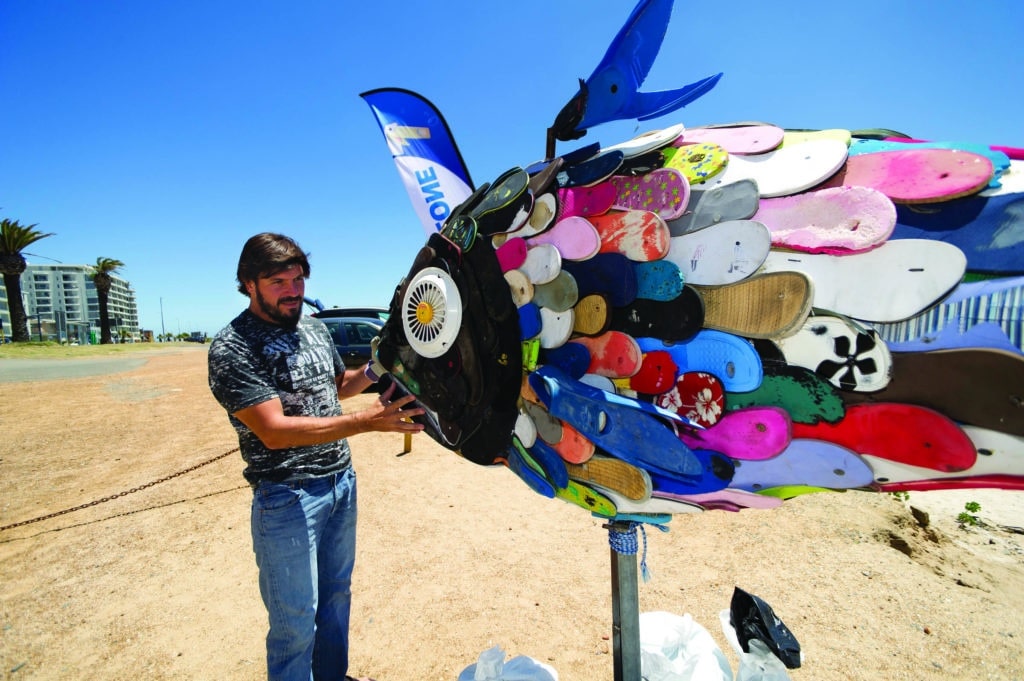
In May, my hometown of Newport, Rhode Island, hosted the latest edition of the round-the-world Volvo Ocean Race. We once were the site of a little sailboat regatta called the America’s Cup, so there was high confidence that Sail Newport, our treasured local community sailing operation, and the race organizers, state politicians, corporate sponsors and other stakeholders could pull off a world-class event. But nobody was quite prepared for the sensational two-week festival of yachting that ultimately transpired.
When the spray had settled and the crowds had vanished, however, what I’ll remember most about the fortnight wasn’t the race village or the spectacle on Narragansett Bay, but a conference called the Ocean Summit, held just prior to the restart. Little Rhody’s second nickname is the Ocean State — it says so right there on the license plates — but this gathering was all about the state of the world’s oceans. It was, in a word, sobering.
Two moments in particular stand out. The first was a clip from a video montage featuring Bouwe Bekking, the Dutch skipper of Team Brunel and a seven-time veteran of the race, taken while the fleet negotiated the Malacca Strait, the waterway linking the Andaman Sea and the South China Sea. Gazing forlornly at the seaway littered with man-made trash and other detritus, his voice thick with disgust, Bekking says, “Look at all the shit in the water.” I once raced through the strait myself, and he’s correct. It’s a fetid, revolting cesspool. Never fall overboard in the Malacca Strait. Drowning would be the humane way to go.
In stark contrast, the other standout instance from the conference, a photograph in race director Knut Frostad’s PowerPoint presentation, was bright and colorful. Which actually made it equally devastating, because the pretty fish sculpture pictured, created by South African surfers and artists during a Volvo stopover, was fashioned from the dozens and dozens of discarded flip-flops they’d gathered on coastal beaches — a microcosm of the tens of thousands of pounds of plastic, garbage, sewage and junk that wash up on shorelines around the world on a daily basis.
Such lovely artwork. Such an awful statement.
So what in the world can we do?
The impressive roster of speakers, a cross-section of politicians, scientists and mariners, had plenty of cogent observations and long lists of statistics, but few hard answers. But it’s worthwhile to pay heed to some of their thoughts and numbers.
Philanthropist Wendy Schmidt, wife of former Google CEO Eric Schmidt, is an avid sailor who has launched an ocean sustainability and awareness program called 11th Hour Racing.
She spoke of mankind’s dirty, not-so-little secret, the one nobody really wishes to dwell too long upon: There are now over 7 billion humans wandering about the planet, and population growth continues to skyrocket. What, exactly, are the effects of this boom on our environment and resources? Is there a limit to the Earth’s natural bounty and the number of people it can support, and if so, who can or will address it? Hard questions. But when it comes to conspicuous consumption, we Americans are surely the worst offenders. Alluding to Annie Leonard’s book, The Story of Stuff, Schmidt said, “If everyone on Earth lived like Americans, we’d need 4.6 planets.”
Citing a changing climate, unsustainable fishing practices and polluted waterways, Dennis Nixon, a professor at the University of Rhode Island’s School of Oceanography, said, “These are problems we’ve created on our own in the last 50 years. We’re making a mess of this planet, and it’s up to us to do something, starting today.”
Finally, noting rising water temperatures and the spread of plastic pollution, among other issues, Rhode Island Senator Sheldon Whitehouse, who moors his classic Herreshoff sloop in Newport Harbor, said, “Those of us who enjoy the privilege of living lives on the ocean have a responsibility to bear witness to what the oceans are telling us.” As a fellow sailor with a shared affinity for the deep blue sea, he’s right. It’s up to us to lead this charge.
“Think globally, act locally” sounds simplistic, even trite, but it’s true. We cruisers have already chosen a vehicle powered largely by the pure, clean wind, but we can do better. Sail more, motor less. Embrace solar. Ashore, drive smaller, more fuel-efficient cars; better still, dust off the bike. Ditch the plastic shopping bags and water bottles. These are small things, sure, but they do add up. Yes — start today.
After all, if we don’t care — and act — forcefully and passionately, who the hell will?
Herb McCormick is CW’s executive editor.

